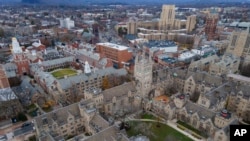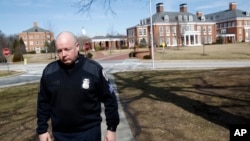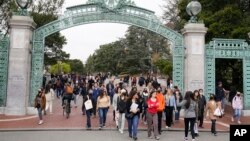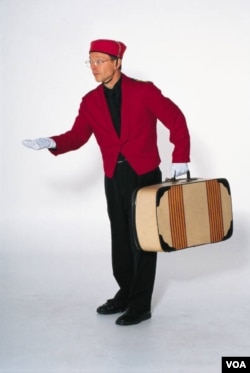Student Union
- By Hein
I Couldn't Get Sponsored for an H-1B Visa, and Here's Why
I remember the very day I received the letter that I had been accepted as an undergraduate student at Johnson & Wales University. I had big dreams and aspirations about what I was going to become upon graduation from one of the best hospitality schools in the United States. I envisioned myself becoming a successful hotelier; the next big thing in Burma.
I remember when I was granted my student visa after hearing that many other Burmese students had been rejected, I just could not have been happier. The following night I had a fiesta with my family and friends to bid them all farewell, and I had a flashback of all the great times I would be leaving behind in Burma.
When I look back at those moments, now that I am a graduate student at Georgetown University working on my degree in public relations and corporate communications, all I can think about is what I should have done differently.
I thought graduating from an American college would set me up for a career in the United States in my chosen field. In Asia a bachelor’s degree from an American college would have helped me attain a job without much effort. But that was not how it worked when I tried to find a job in the U.S.
After graduation I started my OPT (Optional Practical Training) with hopes of pursuing a career in the hospitality industry and gaining several years of work experience in America. I interned at a New York City hotel for a year, hoping it would later turn into a full-time job. But it didn’t, and it ended up being difficult to find an employer who would sponsor me for a work visa. I interviewed with several hotels who said they couldn’t consider me if I needed sponsorship.
[What one student learned about finding work experience in the U.S.]
It was bad timing for all of us who graduated in 2009, I think. Several hotels that had previously been willing to hire international students had stopped doing so, and the majority of my international friends left the U.S. upon graduation. They could not land a job that would sponsor them either.
But I was determined to stay in the U.S. for a couple of years and gain more work experience. Plus, to be honest, I just didn’t want to go back home right away - this country has really grown on me.
I tried applying to other industries but my educational background was working against me. In my experience, the employers that will sponsor H-1B work visas are looking for applicants who have specialized technical skills, such as engineering or accounting. A friend of mine, who graduated the same year, landed a sponsored job because of his programming skills. I lacked the technical skills that employers were looking for.
So when I think back on my college education, I wish I had chosen a different path. I wish I had chosen a technical major such as accounting or finance - a major that would have better served my goal of getting sponsored to work for a few years in the U.S.
Nonetheless, I have to embrace the mistakes I made. After all, I cannot redo my college education – I can only move forward. So I am pursuing a graduate degree at Georgetown University, hoping to gain a new skill in public relations and corporate communications.
See all News Updates of the Day
Proposed settlement offered over financial aid allegations

A group of U.S. colleges and universities have agreed to settle a lawsuit alleging deceptive financial aid tactics, according to a report published in The Hill.
The schools would pay $284 million to plaintiffs who were enrolled full-time and received financial aid between 2003 and 2024.
The schools have denied the allegations. (April 2024)
Universities in Middle East building research relationships with China

As China bolsters research relationships with universities in the Middle East, the United States has taken notice – especially when that research involves artificial intelligence.
Reporting for University World News, Yojana Sharma has the story. (March 2024)
Tips for staying safe while studying in the US

Recent news events have raised safety concerns among some international students studying in the United States.
Adarsh Khandelwal, writing in the India Times, has tips for staying safe from the moment you arrive until the day you complete your studies. (March 2024)
Some colleges are making digital literacy classes mandatory

A 2019 study by Stanford found that most college students can’t tell the difference between real and fake news articles. Amid rampant online disinformation, and the threat of AI-generated images, some schools are making students learn “digital literacy” to graduate.
Lauren Coffeey reports for Inside Higher Ed. (March 2024)
With federal student aid delays, students aren’t sure what college will cost

The U.S. Department of Education’s federal student aid form (FAFSA) experienced serious glitches and delays this year.
Now, many students have been admitted to college, but don’t know how much money they’ll need to attend.
Read the story from Susan Svrluga and Danielle Douglas-Gabriel for The Washington Post. (March 2024)








